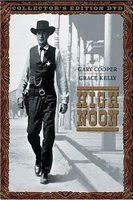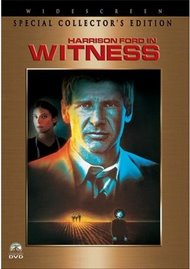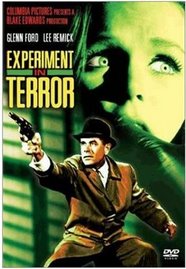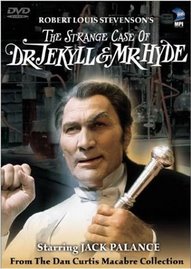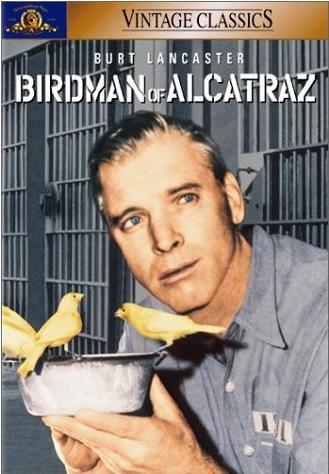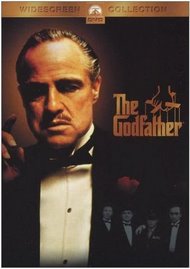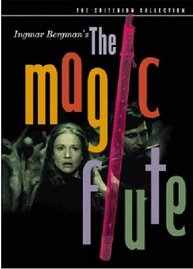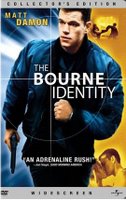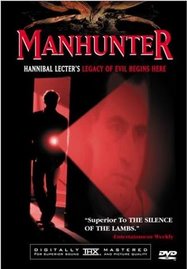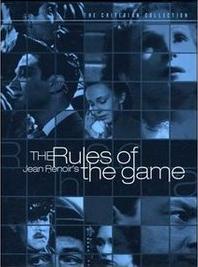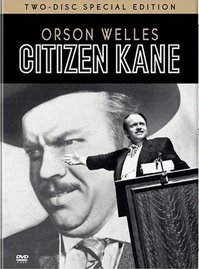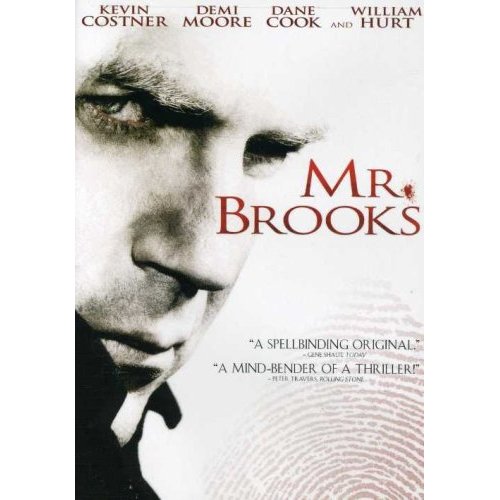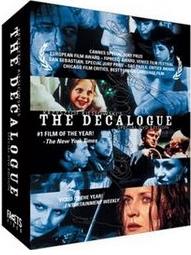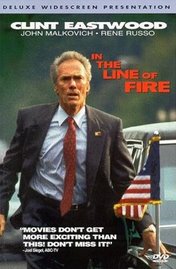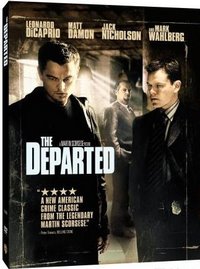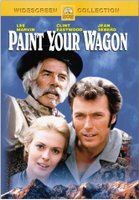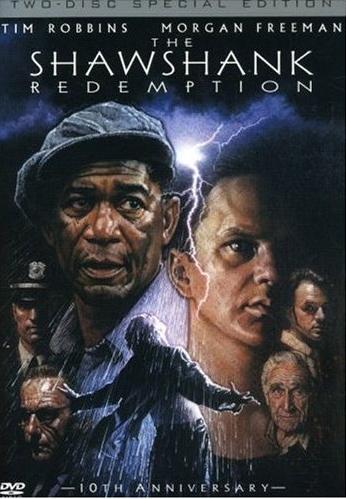Sunday, March 2, 2008
Would you give a special treatment to your staff who is pregnant?
“Dear Helen,
While it is a truism that pregnancy is not unusual in the general sense, it is clearly special to the person who is pregnant, not to mention the baby forming inside her.
Getting prepared for a baby's arrival is equally a challenge in our busy world, especially if the father is wrapped up in his own world and not pitching in. In such an instance, often the pregnant woman must rely on an understanding set of co-workers and bosses to lessen the isolation of the experience.
When I was working as an attorney for The University of Texas System, my secretary became pregnant. With a lot of work to do, I at first thought this was going to be a problem.
We supported her throughout and accommodated the natural changes in her body and feelings, before laws, rules, regulations, and policies were passed to accommodate such a condition. It wasn't always convenient, but then life isn't always convenient.
We all responded to the situation as a growing experience. She kept being a very thoughtful person. Close to the time she was to have her baby, she found a friend who was willing to come in and work for us on an interim basis. She trained the person herself. That person turned out to be equally thoughtful and up to the task.
From my perspective this was one of the wisest things she could have done. We never felt like we were being left to fend for ourselves.
When my original secretary was ready to come back, the transition was seamless and I realized that she would be loyal to me in part because I had been loyal to her.
She turned out to be one of the best secretaries I ever had. A wonderful human being and mother. I was proud of her for starting her family and happy that we could support her in that pursuit.
Later, she moved on to higher positions within UTS and is quite successful. I cannot help but think that by working together through one of life's natural and normal experiences, we managed to arrive at some very special results for all of us.
A frank, but warm talk may be in order in your case. But, handled appropriately, this situation may end up being one of your proudest moments as well. John”
What do you think?
Please include your comment here or contact me to discuss.
Thanks.
John Darrouzet
What do you consider to be appropriate ways of responding to unexpected events?
“Dear Sherri,
Excellent question!
One of the first things I learned as a software engineer was not only to back up everything before making a change, but also to have a plan B for when the unexpected occurred.
The back-up was relatively easy, especially if done on a regular basis.
Having a plan B for all unexpected contingencies was not and is not easy, if even possible. So there is an underlying issue that is exposed by your question:
Do you want to control and manage peoples' responses in such events?
When I was young, I was surely a control-oriented person. Over time I came to learn that my desire for control reflected my sense of insecurity more than anything else. In mid career, I became a manager of events and people and learned that control was not the objective, but managing the uncontrolled events was.
Over time I came to learn that my desire to manage events and peoples' responses to them reflected my fear of being held accountable for the actions of others more than anything else.
Now, I am no longer interested in managing the way people respond. For, I am more interested in how leaders respond to situations and events and to people who are free to be out of their control.
As I may have written you before, from my experience, leaders make decisions. Managers make judgments based on leaders' decisions. Supervisors make choices based on the judgments managers make. Each level and activity can be done professionally. When an unexpected event takes place, a supervisor reports it to the manager. The report is critically important because it provides factual data for the manager to take into account in his or her criteria for future choice of alternative actions.
When an unexpected event takes place, a manager analyzes it and makes recommendations to the leader concerning future courses of action. The analysis is critically important because it provides reasoning based on reported facts for the leader to take into account in his or her decisions.
When an unexpected event takes place, a leader contends with it and the consequences of it to the managers, supervisors and people he or she is leading. The facts and reasons the leader must contend with are critically important because they provide the necessary, but not sufficient, bases for taking a specific course of action. For it is the leader's insights into the facts and reasons that ultimately provide the basis for taking a specific course of action in response to the unexpected event on behalf of everyone the leader leads.
Given this analysis, you may respond as a supervisor would, as a manager would, or as a leader, regardless of the title you hold. Some will view your response as simply a matter of style. Others will see it as simply a matter of how you are playing office politics. Only a few will see your response as an indication of what level you are shooting for by your actions: supervisory, management, or leader.
Once you begin to respond consistently from one of these perspectives, you will not be seen as part of the problem of unexpected event, at least most of the time. You will be seen as part of the solution you have decided to contribute at. John”
What do you think?
Please include your comment here or contact me to discuss.
Thanks.
John Darrouzet
WHY: Is Humility Really Powerful?
“Dear Wei,
When I was younger, I grew upset with my father because he was so very humble. I wanted him to be more ambitious and proud of what he could accomplish. I was just starting out and wanted those qualities myself.
Over the years, I gradually held my father in higher and higher esteem as I saw how he had raised six children all to be professionals. I began to wonder whether what I was accomplishing could possibly match his. The comparison was not always comfortable.
Later in life I watched my father become even more humble as he retired and began to prepare for death. He started going to Mass every day. He exuded a humble and gentle holiness. I began to take my spiritual life more seriously.
Before he died, his humility became all he was as he lost contact with us, not recognizing who we were. The only voice he responded to was my mother's. And I began to deal with my loss at not asking him all the questions that I had failed to ask when I was younger and thought I knew it all and he had nothing to tell me.
When I think of my father now, I see him on a journey to become as close as he can become to the Most Humble Being who remains silent and shines so brilliantly in the darkness around Him.
I appreciate silence and darkness more and more and enjoy going to sleep so I can experience the light every night in the most vivid of dreams where my father comes to show me things that I want to learn from him now.
As my father taught me, the Most Humble Being is the most powerful because He attracts us with a gentle but irresistible force, like the wind. And so, whenever I feel the wind, I feel the presence of the most humble and powerful beings in my life. John”
What do you think?
Please include your comment here or contact me to discuss.
Thanks.
John Darrouzet
What's your brand?
"Passionate.
Commonsensical , from the perspective of values.
Connected, from the perspective of purpose.
Insightful, from the perspective of vision.
But, when it comes to the perspective of mission, passionate.
Passionate about what? Helping others make decisions.
Why?
Because:
1. Making decisions is the most valuable of all the human actions. Commonsense becomes fully applied.
2. Making decisions is the crucial mission of leadership. Hearts become fully committed.
3. Making decisions is the proof of selfless purpose in relationships. Souls become fully bonded.
4. Making decisions is the culminating result of visions shared. Spirits become fully enthused. My profile on LinkedIn describes the skills, tools and experience I bring to the decision-maker’s table. My blog, Special Counsel for Decision-Makers, shows the package I am presenting now.
Thanks for the inspired question. ”
What do you think?
Please include your comment here or contact me to discuss.
Thanks.
John Darrouzet
Are you aware of nonviolent communication?
“My friend and teacher John S. Dunne wrote "The Peace of the Present: An Unviolent Way of Life" to address this arena.
In the book, Dunne takes addresses three questions in his quest to understand violence.
- Where does violence come from?
- Where does nonviolence come from?
- How can we live in the peace of the present?
Written well before our current age of terrorism and war, still these meditations take on the most significant questions of our times.
Like Ghandi, recognizing that violence numbs the heart and that nonviolence gives voice to the heart's deepest desires, Dunne grasps the still center of the storms that churn around the eyes of the hurricanes of violence and notes the peace of the present at the core.
His distinction between the Hindu and Christian understandings at this centerpoint is tell-tale and worth great discussion as East and West meet more and more.
Highly recommended.”
What do you think?
Please include your comment here or contact me to discuss.
Thanks.
John Darrouzet
How do you inspire passion and real loyalty in your organization?
“Dear Eileen,
In my experience, the following may address the dynamics of what you are touching on.
Passion and real loyalty in an organization is not achieved by influence, empowerment, power, or authority. Though all of these may be necessary, taken alone or together they are insufficient. Rather, it is the result of another concept and method.
The concept is trust.
The method is relationships built on trust. Building trust in relationships defy organizational priorities because they are built on social realities among the people in the organization, not on the fictional realities of any superstructured corporate or administrative hierarchy.
Because trust is not readily extended, though deeply desired, it occurs most naturally when people in relationships are inspired to give trust to one another. But to do so really means to be willing to entrust oneself and one's work to another. This forms the basis of bonding among those with longevity. But that bonding also creates a barrier to entry for newcomers.
Thus, one's trust must be extended first and then, after proving oneself trustworthy, others will acknowledge that with their reciprocal extension of trust that has been earned.
When the trusting relationship is formed, loyalty follows.
With such a foundation, a passion for the co-workers' mutual work emerges. An experience of broken trust (betrayal), for what ever reason, shuts down this natural, social process. And all of the above backs out, one step after another or sometimes all at once like an abend (abnormal ending).
So long as trust does not exist, no amount of influence, empowerment, power, or authority will heal the damage. Organizations that do not pay attention to this dynamic then lose good people who move on and are saddled with untrusting survivors who operate well in an environment where distrust is the norm.
But untrusting survivors are too shut down to be inspired, too dispassionate to feel passion, and are loyal only to themselves in the final analysis because that is what they have learned from the organization looked at as a separate "person" from the people who work in it.
Given these dynamics, what can an individual do to inspire passion and real loyalty in the organization?
First, the leaders have to find and renew their own source of inspiration.
Second, once leaders are inspired, they show their passion derived from it through their willingness to work with all of co-workers.
Third, when co-workers work together, no matter what the level or title, leaders show loyalty to them by being true to themselves and the source of their inspiration.
Fourth, leaders are always prepared for acceptance, rejection, or just disregard and, as a result, they must be "wise as serpents and simple as doves."
Fifth, when leaders determine they are no longer welcome or their words are no longer listened to, they are reminded to "shake the dust off your feet when you leave." John”
What do you think?
Please include your comment here or contact me to discuss.
Thanks.
John Darrouzet
WHY: Do we have two faces?
“Dear Wei,
Your question immediately brought to mind one of my hero's approaches to the problem of living in turbulent times. Shakespeare lived in very turbulent times and knew well the masks that people had to use to survive. (See "Shadowplay: The Hidden Beliefs And Coded Politics of William Shakespeare" by Clare Asquith linked below).
Two things are interesting about this problem of masks. Everyone assumes others are wearing masks all the time. So even when you are just trying to be yourself, no one believes you because they see you as having a hidden agenda at all times.
Thus, the Fool (read Jay Leno or David Letterman for example) can play jokes on the public officials (the President for example) without real worry of consequences even though they are dead serious in their comments about the emperor's lack of clothing.
Enjoy, then, Shakespeare's wisdom about the decay and corruption he saw about him in such a state of affairs, from his play "As You Like It":
All the world's a stage,
And all the men and women merely players:
They have their exits and their entrances;
And one man in his time plays many parts,
His acts being seven ages.
At first the infant,
Mewling and puking in the nurse's arms.
And then the whining school-boy, with his satchel
And shining morning face, creeping like snail
Unwillingly to school.
And then the lover,
Sighing like furnace, with a woeful ballad
Made to his mistress' eyebrow.
Then a soldier,
Full of strange oaths and bearded like the pard,
Jealous in honour, sudden and quick in quarrel,
Seeking the bubble reputation
Even in the cannon's mouth.
And then the justice,
In fair round belly with good capon lined,
With eyes severe and beard of formal cut,
Full of wise saws and modern instances;
And so he plays his part.
The sixth age shifts Into the lean and slipper'd pantaloon,
With spectacles on nose and pouch on side,
His youthful hose, well saved, a world too wide
For his shrunk shank; and his big manly voice,
Turning again toward childish treble, pipes
And whistles in his sound.
Last scene of all,
That ends this strange eventful history,
Is second childishness and mere oblivion,
Sans teeth, sans eyes, sans taste, sans everything.”
What do you think?
Please include your comment here or contact me to discuss.
Thanks.
John Darrouzet
Refusing to dig deep?
“Dear Sherri, Refusing to dig deep is not so much an invincible ignorance as it is an ignorant invincibility.
There is a major difference between knowing something is wrong and being willing to do something about it that would require change.
Perhaps the root-cause of refusal to seek root-cause is an unconscious acknowledgement of the power of will in the face of reason and emotion.
Which of these faculties has the reins: the will, the reason, or the emotions?
Often will power's hold on someone is seen as emotions running rampant in the face of cool reason. But the heart has reasons that reason does not know. All reasoning is ultimately hypothetical.
As a result, one of the root causes of refusal to seek root-cause may be a deep understanding that causal analysis ultimately fails to produce the certainty some would promise and others desperately seek.
Trying to "handle" someone else's will requires a much deeper knowledge of what "handling" means to you and them. "Handling" suggests a form of manipulation.
With a stong-willed person, the smell of it will be noticed from miles away. You may want to lead persons to see root causes, but most often they will only see them if either they agree with all of your assumptions that must be clearly examined or they are persuaded emotionally by your rhetorical skills.
Since many have been down either or both of those roads before and have seen the precarious results, they may be like the proverbial horse you have led to water that they will not drink.
Being their neighbor, boss, committee member, or employee, whatever becomes a task unless you decide to love them as yourself. From a lover's perspective, the will to join them on their journey to "get it" is no longer one of domination but of a deeper form of education.
This form of education is about informing the will with insight and insight into oversight. At some point, the best you can do is "save" a conflict, by agreeing to disagree or giving in to the other person, out of a sense of patience. The truth of the conflict will eventually expose itself.
The key then is to be or become a trustworthy person and realize that sometimes you are not the one called on to "save" the other person from themselves. In effect, the root cause for their refusal to seek root cause may be those of us who pursue them without recognizing our own blind spots. On the other hand, when we know in our hearts we are right about something, we may have to be willing ourselves not to agree to disagree, not to give in, and not to "save" the relationship, but rather be willing to sacrifice it to maintain not only our own integrity but to show the other person how important the matter is.
It is better under some circumstances, for all parties concerned, that we be willing to risk the relationship rather than give in. This may be the test of our wills that the other person needs or wants to get the truth by showing it to them rather than telling them about it or forcing them to find it in our presence. Here our actions speak louder than our words. John”
What do you think?
Please include your comment here or contact me to discuss.
Thanks.
John Darrouzet
What is the secret to overcoming moral schizophrenia?
Excellent question.
This is clearly a serious situation for many people, especially for those who don't recognize it as a problem to begin with.
There are several avenues of approach to the answers.
First, let me say that the situation is not so much the result of a logical error in a classical sense. Rather, from an existential perspective, the situation most probably is one of self-deception and cowardice. (See Kierkegaard's Philosophy: Self Deception and Cowardice in the Present Age by John Mullen .)
It begins by too close an adherence to doubt as a method in learning knowledge, especially philosophies of life, in preference to the love of wisdom and faith. I point to Descartes for this process of dis-integration. (See The Unity of Philosophical Experience by Etienne Gilson and Socrates Meets Descartes: The Father of Philosophy Analyzes the Father of Modern Philosophy's Discourse on Method by Peter Kreeft.
When the emotional aspects of continuing Cartesian doubt over a life time, but especially during years of work life, are not recognized, unconscious existential despair seeps in.
To overcome doubt and despair in the pursuit of all-powerful work knowledge, personal power is resorted to and perception becomes everything. Involvement in Sunday rituals that no longer reveal meaning is part of the effort to save face in the community rather than one's soul in the face of God. Thus the person becomes more and more isolated from the spiritual community and more committed to interacting in the business world in a Machiavellian manner. (See Socrates Meets Machiavelli: The Father of Philosophy Cross-Examines the Author of The Prince by Peter Kreeft.)
Cartesian skepticism leads to Machiavellian cynicism and this toxic combination leads to various forms of effective atheism and nihilism. Here Sartre is the pied-piper. His argument essentially boils down to: "If God is dead, everything is permissable." The school of hard knocks may disabuse this gateway to rock-bottom solipsism, but clever people can avoid such a consequence by distraction and indifference, especially since secularism has become so dominant in the culture. (See Socrates Meets Sartre: The Father Of Philosophy Meets The Founder of Existentialism by Peter Kreeft.)
On the other hand, if this level of Sartrean nausea is hit, the depression may turn the person, or at least the onlookers, turtle. The obvious solution will raise up to push back at the nihilisitc hypothetical with another one equally available: If God is alive, instead of dead, not everything is permissable.
Once this clearly more true and more hopeful hypothetical is lived out and felt at the heart level, it will become apparent that it is not just power that makes right, not just conventions of law and ethics that demands observance, not just a duality of body and mind that must be accounted for, but the moral integration of mind, body, soul, and spirit in human beings that can only be fulfilled by a relationship with God on a regular basis. When the connection between the human being and God is re-activated, the moral schizophrenia will disipate, the frustration will subside, and the depression will let up. (See Christianity for Modern Pagans: Pascal's Pensees by Peter Kreeft.)
To accomplish this turnaround requires more though than a choice based on hypotheses, more than a judgment based upon agreed upon assumptions and evident facts, it will require decisions based on repeatable processes with accumulating results of insights into truth and understanding of oversights and fallacies. Such results are imminently practical and readily useful every day of the week no matter where the person is.
Thanks. John"
What do you think?
Please include your comment here or contact me to discuss.
Thanks.
John Darrouzet
Alphabetical List of Blogs
· "Experiment in Terror"
· "High Noon": Example of the Hero's Journey
· "It's A Wonderful Life": Example of the Decision-Maker's Path
· "Lawrence of Arabia": What insight about change and decision-making do you see portrayed in the movie?
· "Witness": Out of the Ordinary
· A personal question: What is one of the most memorable events in your life?
· According to you, what is Success? Whom do you consider as a successful Person? Are you Successful?
· Advice for someone embarking on a new career adventure?
· Anecdotal evidence: worthwhile or worthless, when compared with metrics and statistics? Which do you use more in your business? What have you found to be the most effective?
· Are efforts to manage change effectively limited by where the truth that lies in the plurality of the world's organized and institutional religions?
· Are you aware of nonviolent communication?
· Are you happy?
· Are you part of the creative solution or an unconscious reactionary?
· Are you playing with a full deck when you argue for change?
· Best book to read while on a business trip?
· CHANGE MANAGEMENT: What or who is our worst enemy?
· Common-sense philosophy for managing change?
· Comparing World Religions
· Controversy: Unpredictability vs. Consistency (Yin vs. Yang)
· DISPUTATION: Is disputation the best way to focus participants in change management? (Disputation)
· Do you believe in the bell curve of intelligence and do you think it shapes whether people are happy?
· Do you have a "method in your madness" when making decisions?
· Do you have a novel in you about decision-making?
· Do you know of a better way to read a book to help you make a decision to change?
· Greatest invention/theory of all time and why?
· Have you ever had a prophetic dream or vision?
· Help Me Understand the Need to Be Right
· How can I raise a total of 200.000.000 euro for investments in the energy sector in Africa. The money will be used for leveraged finance.
· How do I find a truly satisfying role for the long(ish) term?
· How do you determine the truth?
· How do you effectively integrate strategic and tactical planning?
· How do you inspire passion and real loyalty in your organization?
· How do you know when you are deceiving yourself?
· How do you think?
· How does one find happiness in the workplace?
· How is it possible not to think too much?
· How much?
· How should September 11th be memorialized?
· How would you want to be approached by someone who is looking for a job?
· If "legally" given a choice...
· If better leadership produces better results why don't more companies have a formal leadership development program in place?
· If you had 15 to 20 minutes of radio time to speak to people about making change and being whole, what would you say? What would you emphasize? No business spin, just speaking to the hearts of others
· If you really believe in YOUR god how can you live with people who don't share your views?
· In a world driven by commerce and profit, what does it take to keep an eye on taking care of people?
· Is passionate truth-seeking the only way to address our human condition and the dual obstacles of diversion and indifference in change management?
· Is the act of deciding an act of being, of knowing, of doing, or making?
· Knowledge is power. Information is gold. Giving away either of them too soon is just plain stupid. Why?
· Making Choices and the Monty Hall Problem
· Miracles
· Mission Statement
· PERSONAL MISSION STATEMENT: Do you have one you want to share?
· PublicDomainFlicks.com
· Questions and Answers on the Decision-Maker’s Path™
· Questions for Decision-Makers
· Rash Decisions? Is there such a thing?
· Refusing to dig deep?
· RELIGION: What's So Great About Christianity? (Disputation)
· Role of Spirituality in your Professional Success?
· Strategic planning (for small businesses)
· The proverbial silver bullet -- does it exist?
· The Reality: What you know? Who you know? Who they know? Or who knows YOU?!
· To what degree does humility play a part in your...?
· What advice would you have for a new president of a nonprofit board of directors?
· What are the sources of disruption to your ideal plans and how do you minimize their impact?
· What determined your career path?
· What do you believe to be true, but cannot prove?
· What do you consider are the key components/tools/topics that are relevant to business change and 'change management’?
· What do you consider to be appropriate ways of responding to unexpected events?
· What insight about change and decision-making do you see portrayed in the movie "High Noon"?
· What insight about change and decision-making do you see portrayed in the movie "It's A Wonderful Life"?
· What insight about change and decision-making do you see portrayed in the movie "Witness"?
· What insight about change and decision-making do you see portrayed in the movie "Experiment in Terror"?
· What is more important Money or Power?
· What is the best way to fire someone?
· What is the best way to help someone change?
· What is the role of "spirituality" in your work life? Do you feel it? If it is any positive and negative aspects of this in the decision making process?
· What is the secret to overcoming moral schizophrenia?
· What is your definition of creativity?
· What is your favorite movie and why?· What is your integrity-based decision making process? Does it work?
· What issues do you want your children to hear your decisions about before you die?
· What makes a movie trailer Great?
· What makes you Unique? And, after all, what makes you so Generic as all the others?
· What process do you use in decision making?
· What's your brand?
· When asked to interpret written words, what rules, if any, do you use to assure the reliability of your interpretation?
· When did you know you were committed?
· Where do ideas come from?
· WHY: Do we have two faces?
· WHY: Is Humility Really Powerful?
· Why do organizations need managers AND leaders?
· Why do people fear success?
· Why is change regarded as a 'soft' area?
· WHY: Is integrity really important?
· WHY: When it comes to trust, trust your gut.
· Witness
· Worldwide percentage of Adherents by Religion
· Would you give a special treatment to your staff who is pregnant?
· You Only Get One Choice On This, Just One Please!


